Loving Institutions
A public institution is not just any organization. Here's my seven-point list on why institutions are amazing.
In less than a week, I have the opportunity to tick off one thing from my library nerd bucket list: Dokk1 in Aarhus, Denmark (see photo). Dokk1 was one of the main inspirations for Helsinki’s Central Library Oodi.
The Next Library conference, organized by the staff of Aarhus libraries, is the library event I have heard most praise for. People love it for its compact size and high level of engagement. I love the idea that this international innovation event is organized by the staff of this public institution, a public library, in a library.
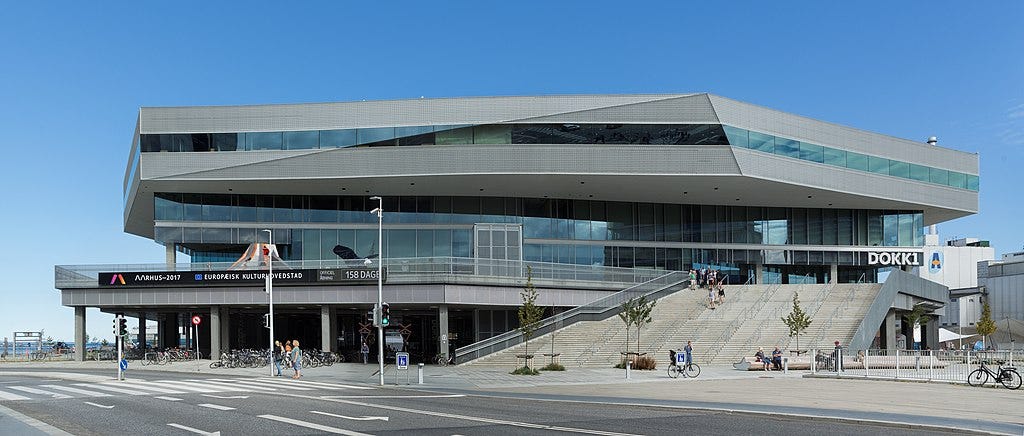
I have the privilege to do a joint keynote with Stacie Ledden and Shamichael Hallman on showing up for your community. In our session, we share the life experiences that led us to committing our career to public life and spaces. We’ve decided to go quite personal here, which has made me choke a few times when practicing. My talk will focus on how I look at institutions having grown up gay.
The organizers asked each of us to write a short introduction for the conference. I wrote:
Tommi Laitio is a public space thinker, writer and consultant who proudly calls himself a creative bureaucrat.
Maybe it is the political scientist in me but I have always loved both the idea of bureaucracy and the idea of institutions. While I don’t work in government right now, most of my work is done with public institutions.
I have my friend Charles Landry to thank for the concept of creative bureaucrat. His thinking has inspired many civil servants and even created a (fun) festival around bureaucracy. Charles’ simple yet empowering idea can be summarized to one question:
How do we move from No Because to Yes If?
I often find people chuckle when I advocate for bureaucracy and institutions. Colloquially, these phrases are used to characterize slow, dated, cold, inhumane actions by authorities. Candidates across the political spectrum win elections by bashing bureaucracy.
I think these words are beautiful and misunderstood. I am convinced based on my studies, personal experiences and career that it is incredibly hard for most of us to build lives we can value, lives without constant fear, lives filled with joy and belonging, without great institutions and functioning bureaucracy. But I also know that institutions alone cannot create great life. A good society requires a combination of personal agency and enabling institutions.
It is worth noting that my love for bureaucracy and institutions is not unconditional. Advocating for strong institutions does not mean that I support all actions by them. I have had my fair share of institutions that waste my time or treat people and partners with disrespect. My love for institutions is built on demanding more from them.
While it is easy to find examples of cumbersome and inhumane public processes, most public institutions I work with are committed to providing a great service. Most bureaucrats really care.
When institutions and bureaucracy work well, they create freedom. When your tax authority sends you a tax proposal based on the information they already have or when the city sends you a text message to suggest a kindergarten for your child close to home based on your address they already have or when you don’t have to bribe people to get a permit, you can use your time for the things that you value. When you are not constantly afraid of authorities, you make smarter decisions.
Institutional Love List
In my work with public institutions, like mayors and libraries, I often encourage them to embrace the idea of being an institution. There are at least seven reasons why they should do so.
Legacy: Institutions are by definition here to stay. You never start from an empty table and you need to carry both the good and bad legacy with you. You need to understand the choices made before you in the conditions of that time while pushing for change where change is urgently needed right now. Often your work is building conditions for the people who come after you and being OK with them taking the credit. It teaches humility and respect.
Legitimacy: Being an institution requires using your codified powers in a manner that sustains, builds and restores public trust. Legitimacy, as in the acceptance of your governing, is a result of what you do and how you do it. The logic of institutional legitimacy is different than that of organizations that people decide to join, like nonprofits, religious communities or even companies. As people cannot opt out of institutions that hold power over them, the question of legitimacy is something you need to carry with you to every decision and every engagement.
Predictability: People and stakeholders outside the institution need to be able to understand, review and criticize your logic and actions. The ground rules for your actions are set by politically elected or appointed representatives or by legislation. Ideally, making decisions in government is like in an academic project: people should be able to understand what information you used in your analysis and the reasons that led to a particular decision. This means that when an institution has done public consultation, it should fairly present also those data points and views that do not support the chosen course of action. This can be extremely uncomfortable but builds trust and legitimacy.
Accountability: There should always be ways for the public, the media, elected leaders and residents to hold you accountable. In order for others to hold you accountable, your decisions, practices and policies need to be codified and easily available. An institution must have ways for the public to question its decisions and ask it to review and reconsider. In most cases you also need to provide a path for appeal. The difficult and delicate balance is providing these review, reconsideration and appeal opportunities in a way that does not result in unreasonable delay or procedural sabotage.
Commitment: For a clear majority of the people working in public institutions, it is not just any job. Most people have decade-long careers in institutions and they have usually intentionally chosen the path of public service. This presents a demand for leadership to ensure that the people working in institutions get to regularly experience that their work takes their city, region or country to a better direction. That their work matters. This is at times challenging when 90 percent of your time might go into things that are not working well or you are publicly criticized in town halls or social media.
Guardian of Assets: As a public institution, you maintain and nurture something invaluable owned by all of us. Whether it is a library collection, a protected building, an iconic sculpture, a public record, a landmark building or an island with endangered species, you need to ensure that you leave it better than you got it. Most of these assets are invaluable and unique. If a public sculpture is destroyed or a library loses a historical print, you cannot just replace it with a copy.
Preparedness: In many cases, people don’t see or think of all the work you have done if things are going well. In institutions, you spend an incredible amount of your time preparing for things you hope will never happen. A lot of people in institutions take pride in the quiet service to their community. It’s an amazing feeling to know how much work has gone into making something effortless for residents.
We live in a time of incredibly unpredictability, uncertainty and division. Numerous institutions around the world are under attack. I see a momentum for repositioning institutions as grounding anchors for people. It means supporting the idea of institutions in general, supporting specific institutions when they deserve our support and pushing for changes when they fall short, need help or take inhumane actions.





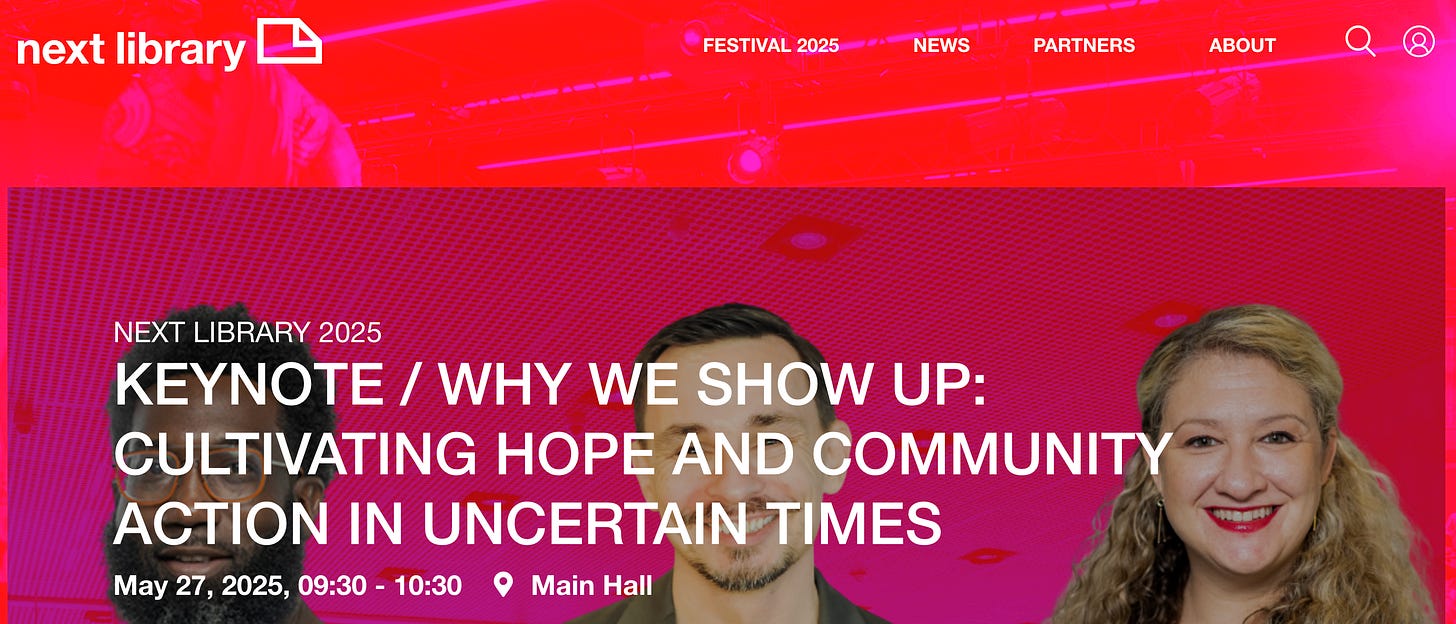
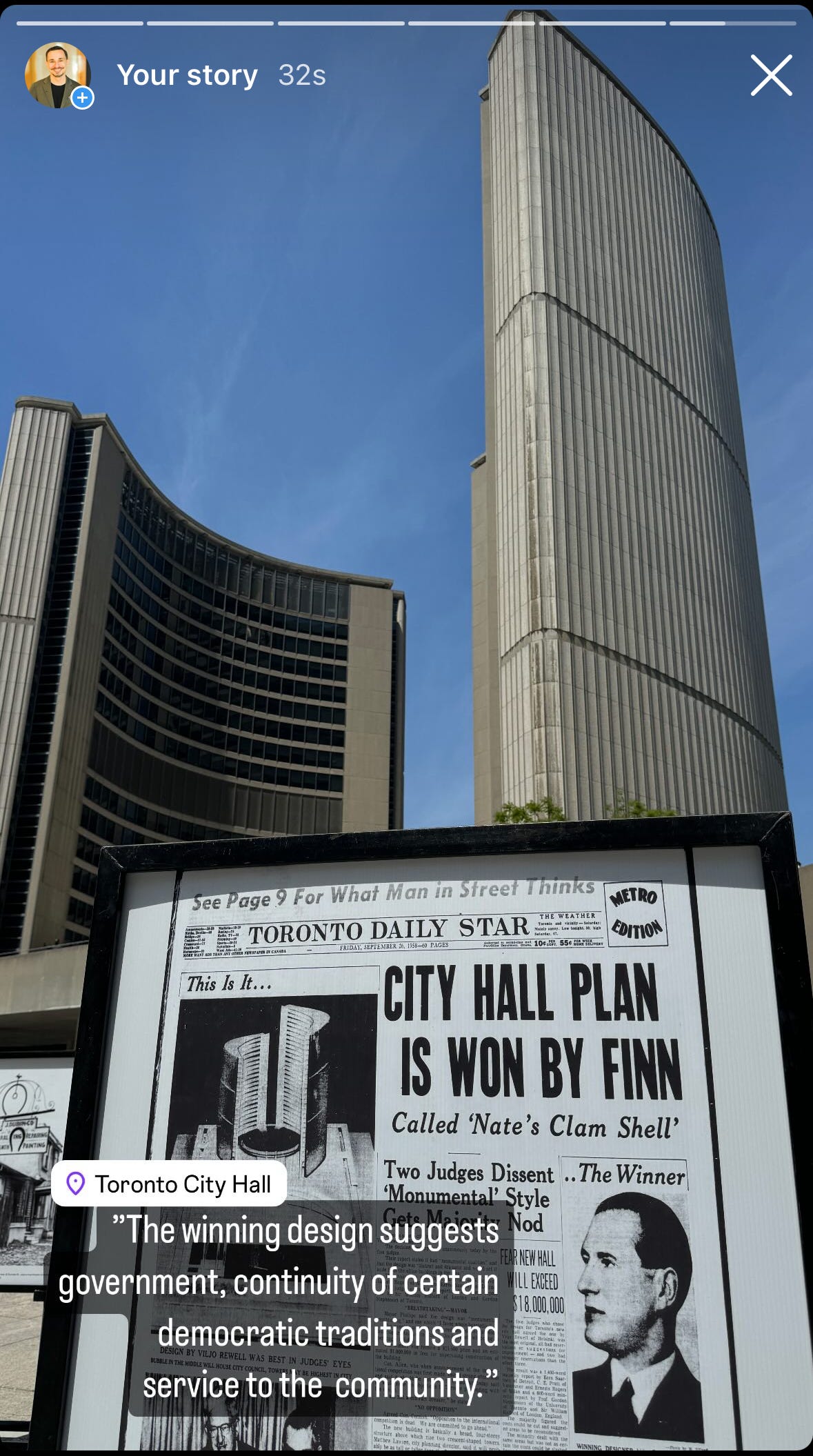
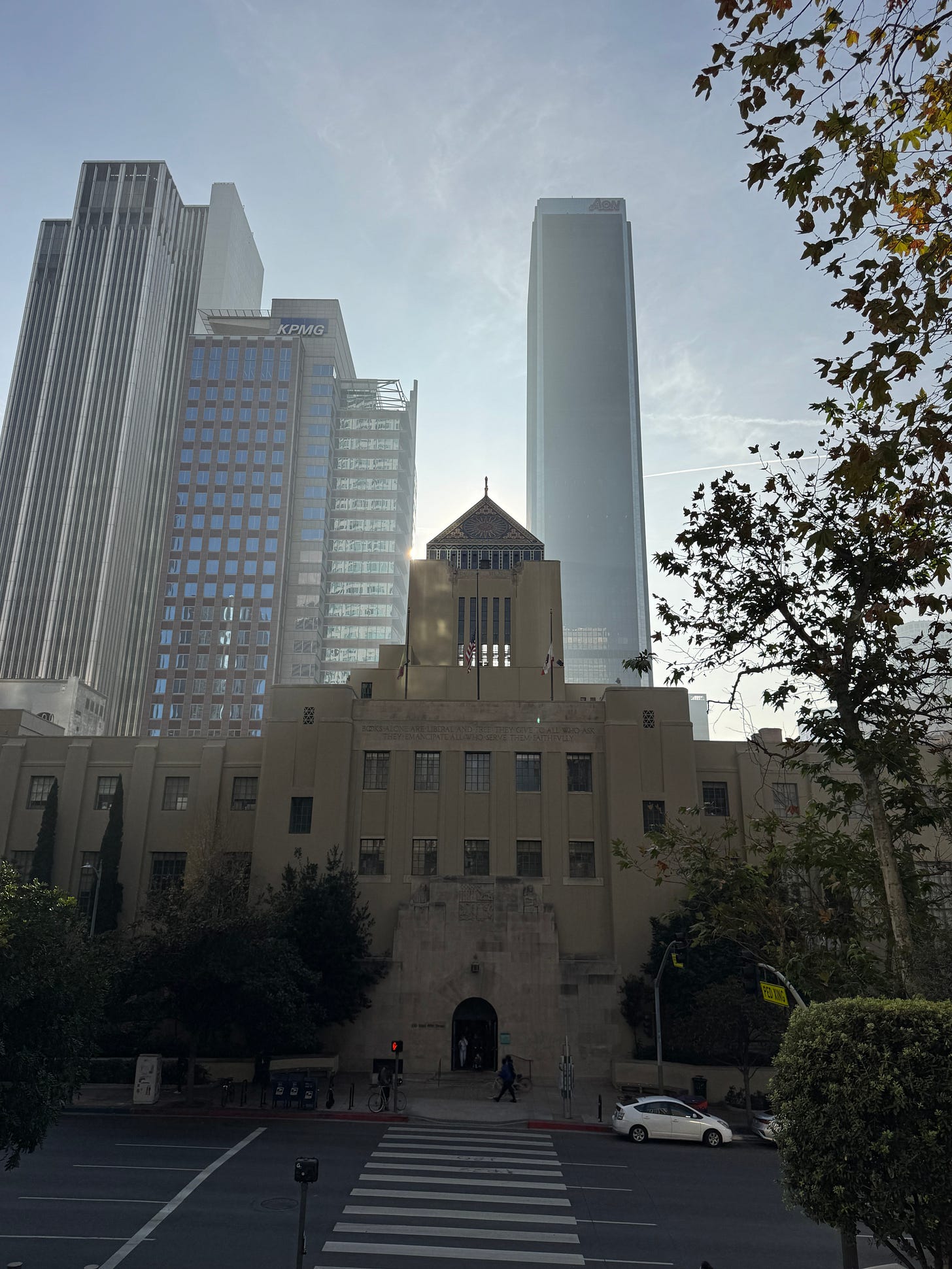
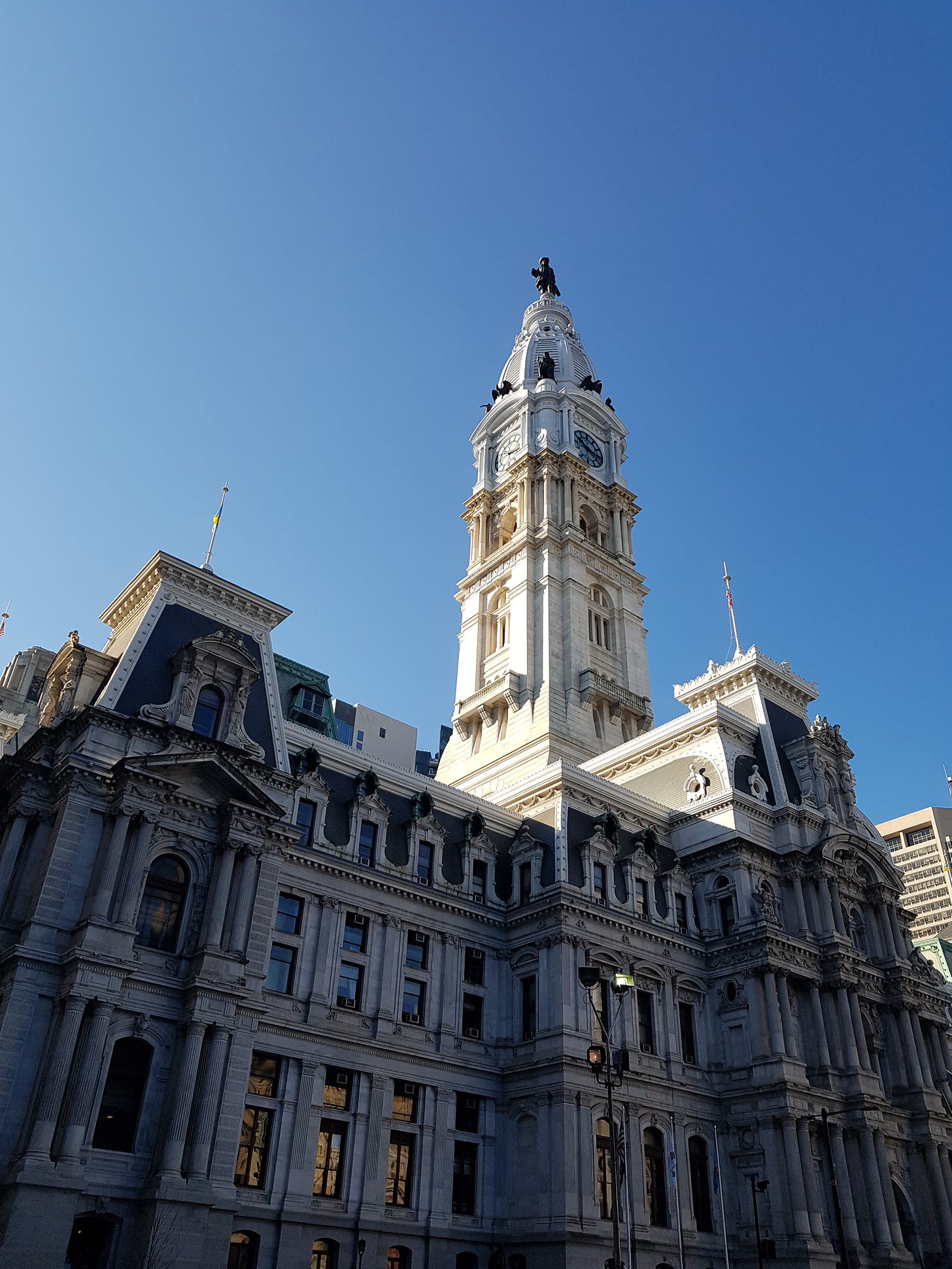
Dokk1's roof is pretty spectacular and inspiring playground wise, also by Monstrum! https://monstrum.dk/en/playground/globe